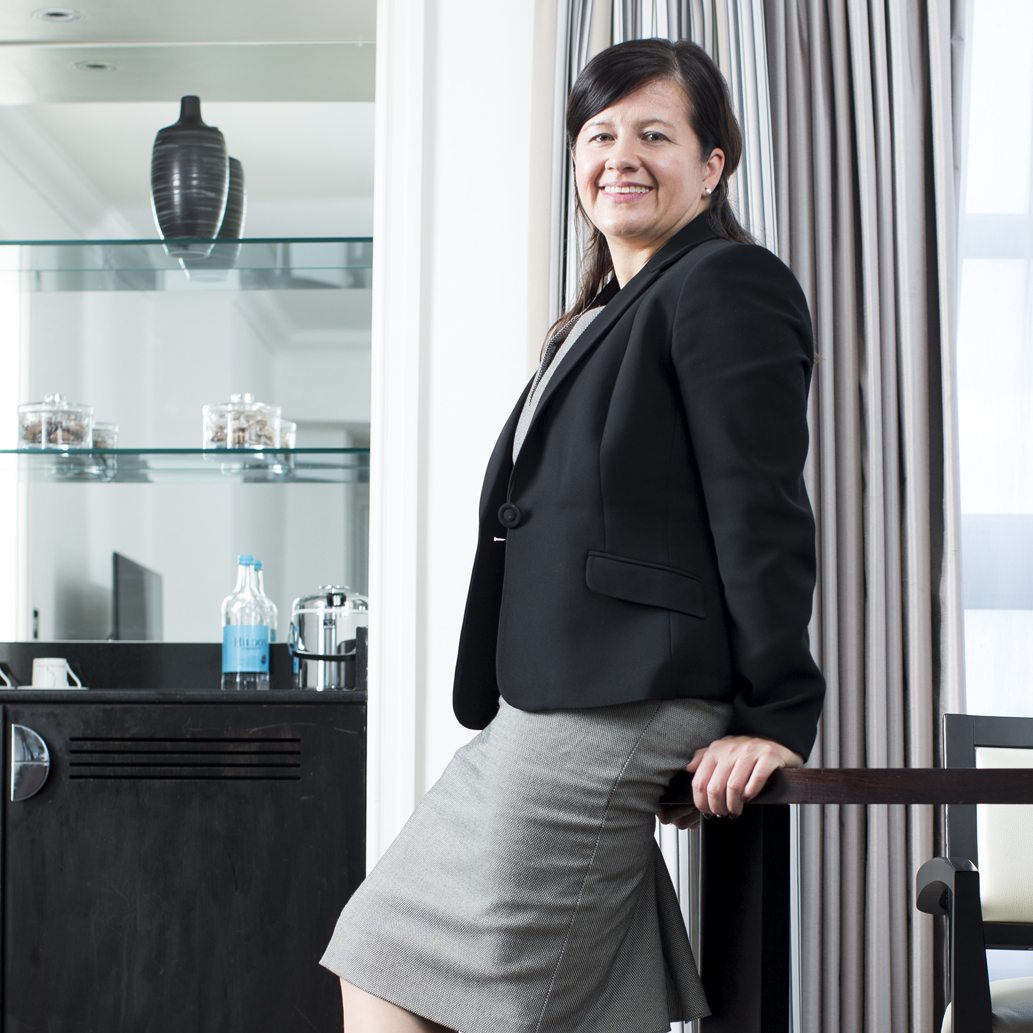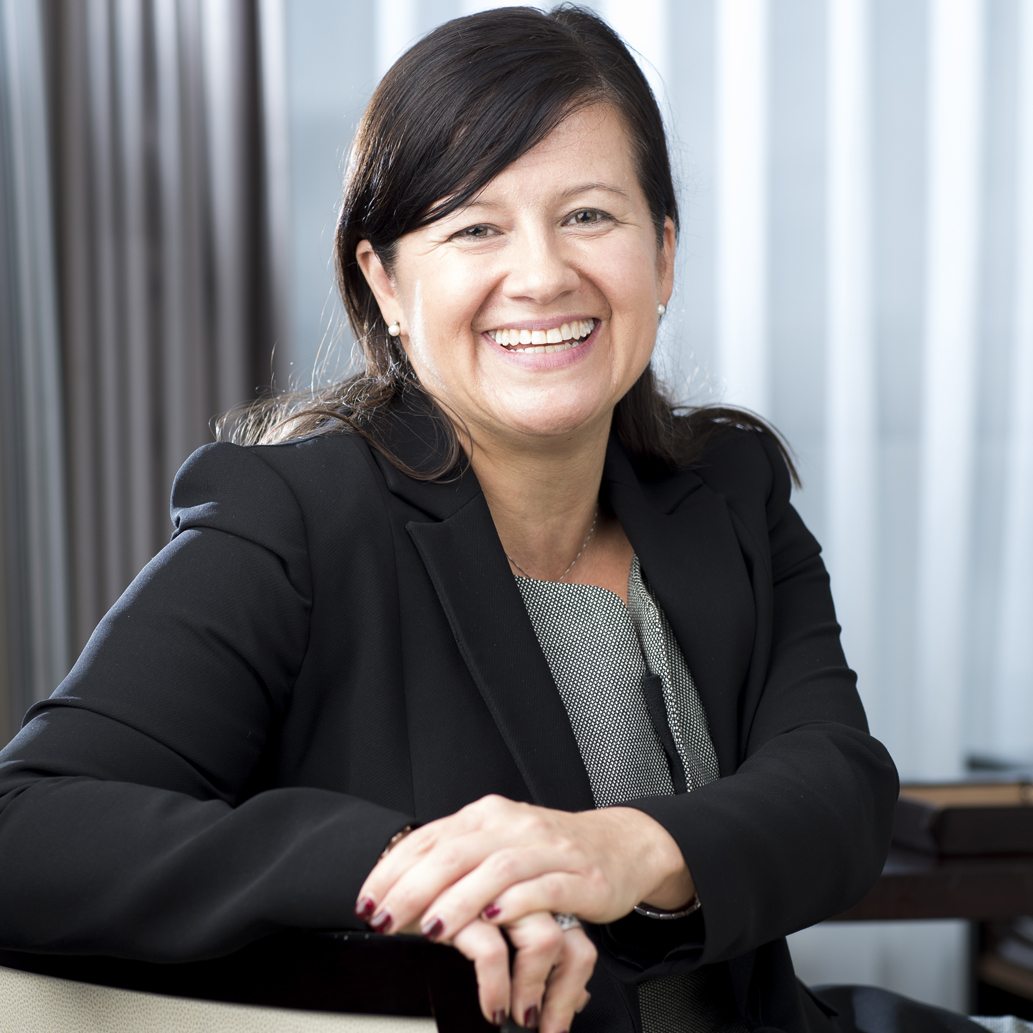Dawn give us an idea about your early life and what it was about HR that got you interested in a career?
It was people that first and foremost interested me, and it quickly became very clear to me that within the hospitality sector, people are the integral element of running a successful business. My initial studies were hospitality-related, studying at the College of Food, Tourism and Creative Studies in Birmingham – now called the University College Birmingham – and I worked in hospitality part-time throughout my college years. I chose to continue my studies at Southern New Hampshire University in the US with a Bachelor’s Degree in Hospitality. I could see the ‘people’ link between hospitality and HR, however as I was becoming a hospitality generalist and HR seemed to be very specialist and was renowned as being difficult to get to get a foot in the door, my initial forays into getting a start in HR were hardly successful! I did, however, get a tremendous first break when I initially joined Hyatt and was seconded to Seattle, where I was a food and beverage trainee.
Seattle was an eye opener to hospitality, US style, highly-charged and very demanding. The culture in the States is seriously competitive, the service you are offering has to be so much better than what is on offer down the block ¥this sort of culture, and the diversity on offer, was something that I had never experienced before. I look back at this time as truly fundamental to my career progression, and I always advise people to work in other countries if they’re presented the opportunity. I think it is the best education to difference and diversity that there is. Yes, it was a very demanding role and long hours, but I really liked the ‘people’ element of the job and it was a great introduction to customer demand for high expectations.
After I completed my degree in New Hampshire and at the end of my year’s trainee tenure in the States, I returned to the UK and started working for another hotel company, Stakis, in my home town of Birmingham. There, I was initially employed as an Assistant/Duty Manager, which exposed me to the ins and outs of how a hotel is run. There was also a lot of HR elements attached to this role, and as I was the only one on property, it was all HR admin – the hands-on stuff, and I worked directly with the managers in the various departments. So I was very much in this 24/7 world within itself. It was much more reactive and on the hoof than my latter experience with Hyatt, which is much more structured. However it was a great place to learn about establishing relationships with the hotel management, and working on all aspects of the business: Recruitment and training through to performance management. There was also such a diverse range of employees from all corners of the globe, so I quickly learnt about the need to be flexible and agile in HR.
Whilst I was in this role, I saw an opportunity to re-join Hyatt, which became my first proper insight into HR. I re-joined the company as HR Officer at the Hyatt Regency Birmingham. My role was rather general, but in particular, I was responsible for overseeing day-to-day recruitment, training and employee relations. I did my CIPD two evenings a week, which was tough, and I continued first as a training manager and HR manager, which led to my role as initially Director of HR, and then Area Director of HR. If I had to pick one highlight of my career, it would be having the responsibility of working on the opening of the Park Hyatt in Moscow, which was the most amazing experience possible. It was very tough, but an incredible insight into a completely different culture, introducing Hyatt to the local population, integrating employees into the business and managing the training across all disciplines. To be sent to another country is seen as an accolade within the company. I remember my first day when I led the orientation seminar, while I was speaking and the training manager was translating, some tough looking security people just burst into laughter, I had no idea if the staff were laughing with me or at me! I really was a fish out of water, but what an experience! Every country is so different; we did an opening in Sochi last year and Amsterdam a couple of years ago.

What were the business objectives and HR's priorities to align with these opportunities?
We have gone through a slow growth period as far as expansion was concerned. However, this is changing, and as with any other luxury hotel company, we aim for our new hotels to have the exact same level of high quality service as any of our existing locations, and for the company’s practices, processes and values to be passed onto new colleagues as quickly as possible via experienced employees. When we open a new hotel, we source specialists from every hotel department from various worldwide locations, from Engineering to Food & Beverage to ensure the best implementation process possible. As much as it is about training new staff at the recently opened hotels, these opportunities also allow for recognition of existing staff members, a clear HR priority for any business. As I mentioned before, the opportunity to be sent to help start up a new hotel is considered as real acknowledgment of talent. While it shows that they are good at what they do, and really exposes our employees to a new environment, enabling them to use and improve their skills, it also gives us a chance to show our appreciation of their expertise.

At what point did you have the opportunity to specialise more in HR?
The choice was presented to me when I re-joined Hyatt. I had to decide whether to continue in hospitality more broadly, or go down the HR route and the latter, I thought, was the best decision. I completed my CIPD and instinctively knew I was on the right track, however in the hotel environment it’s so easy to get stuck into anything that needs doing. I suppose my biggest challenge was learning how to delegate effectively, trust others more and also to be able to stand back and see the bigger picture, rather than worrying about a problem in real-time and wading in to get it sorted. I confess that was tough for me, because I do like to roll my sleeves up and get stuck in, and even now, I have one foot in the lobby and the other in the boardroom, where of course the machinations of the business are decided. I think, all in all, for somebody that always likes to be busy you really can’t beat the hotel sector.

It sounds as if you had to make a really concerted effort to focus your mind on the more strategic and less hands-on elements of HR.
I had to get to grips with the fact that hotels are very absorbing of your time, energy and resources, and that running from one crisis to another is not going to achieve the bigger objectives. There is no doubt that this environment demands very robust HR procedures and crystal clear communication. I think I’ve learnt from experience to be tough on your time and ensure people do not feel they are being dismissed out of hand. When you’re dealing with people, you can never assume anything, nothing is black and white, so yes you have to have a strong backbone, and you need to be flexible and open-minded too. Setting the tone is half the battle. Most of your readers will have experience as a hotel guest, and customer satisfaction of course is the primary concern. That is delivered by such a wide array of people and disciplines; from the engineering teams in charge of the mechanics behind what is essentially a small town, to the more customer-facing people at check-in and concierge – I think for me that is what is so appealing about working within the HR department in a hotel.
What do you think were the significant differences between being a manager in HR to that of HR director?
You have to see things from an overall perspective, and as I touched on, it was a challenge for me. I didn’t step back as much as I should have done, so my role sort of developed over time, rather than overnight. And I think one of the difficulties was I felt responsible for people and I was still their go-to person for sorting out, say, personal issues. I didn’t feel I could just abandon people, so it was a gradual progression, until I realised at a certain point I really didn’t have a choice. If I was going to be truly effective and do the job of a director properly, I had to take a step back and look at being a strategic team leader with a hugely important business imperative. I realised that, in order to do so, it was crucial to develop a team around me that was supportive and specialist, and that I could trust.
Correct, the business has changed significantly over the last few years and continues to change, and so the expectations of my personal role and that of HR in general was, of course, changing. I certainly felt the pressure, as while l was making the leap personally, I also had to raise the expectations of the people around me in HR too, and manage and progress that. My perspective changed to that of ‘planner’, looking at skill requirements and recruiting and talent development for where the business was going. Namely it was essential we hired those able to adapt quickly to change and thrive in that change, but at the same time cultivating people who cared – whether that be care for the business or care for our employees.
It was also empowering people to do the database stuff, so I could take a step back and focus on the strategy. It wasn’t easy, you needed the confidence to build the trust of the individuals, spending time with them to develop their skills and enable me to take that step back. I needed to build up a specialist and disciplined team, create a culture of responsibility and good, direct communication, and an environment that encouraged risk-taking, which allowed for and expected mistakes and failures, but then encouraged those individuals to identify how they could learn from their errors. One thing that helped in this instance was the personal development support Hyatt provides and funds for our employees. For example, there is the option of participating in extra CIPD, if that’s something someone wants to do. I’m proud to say our current HR team is mainly made up of home grown talent that have been supported and developed.
What was it like to take on this more strategic, top-down perspective, and to be HR's representative at director level?
We do have annual HR meetings, and I network regularly. What I can say is now with experience and achievement, I’m confident when attending such meetings, and I know I am well supported by a great team of people in HR. But yes, looking back, it was daunting to start with, but it’s a collective responsibility; working with the General Managers, the director of rooms, all with very specific sets of responsibilities. I do believe that as a good leader, it’s not a weakness to ask for help, on the contrary. What I have noticed as the business evolves is there’s greater fluidity. For example, thanks to these meetings, we were able to put into an operation an employee-suggested initiative where staff modified the employee model. This stemmed from being able to ask and spend time with our advisors in these meetings who are seasoned hoteliers with valuable experience within the company. Having such people on board, who bring a wealth of experience and culture, keeps the company fresh as it undergoes continuous change.
Hospitality has struggled in terms of it being a place for careers, give us an idea of how the sector is better positioning itself to attract talent?
Yes, it is true that in the past hospitality has struggled, and it’s very much down to businesses like ours to sell it as a place for great careers, and when you think about it, it’s a multi-disciplined, international market with a world of opportunities. The young generations do expect a visible pathway, prescribed and bespoke career development route and we have a lot of people throughout the business who are active advocates for a culture of constant development. This goes back to the idea of identifying opportunities and giving people the confidence to go for something different, be that an opportunity elsewhere in the business, or a different territory, and the experience that it provides is obviously an advantage to the business in the future. Some of the work I have done is about providing support for the career development of our employees. Being an international company there are a lot of people who want to travel and they can do it safely within the company – we have so many people moving around internationally. Of course there are areas like housekeeping, for example, you see a more transient culture, but generally, it is a much improved outlook, with much-improved attrition rates across the piece.
But you know, a job means different things to different people, and a big part of the HR remit is to recognise that and react accordingly, and we celebrate high achievement and the day-to-day routine of doing a great job in equal measure. What I’m saying is, if you have to be transferred around the world, that should be celebrated; it’s about recognising people and understanding their needs and aspirations. In HR, we work hard on having genuine relationships with staff, which has the combined effect of making sure they are performing to standards. But also it is two-way traffic, so a lot has been done to create an open door policy, where everyone can feel confident about approaching us with their aspirations, whether that’s learning and development, aiming for a qualification, or indeed to diversify their role – which I am a strong advocate of.
Just the other day, I had one of our parking attendants stop me and ask for some time to talk about management training, because of some previous experience in Spain that he had – which we didn’t really know about – and we have a great record of our General Managers coming up through the ranks in this way, which I think is great. But of course, the speed with which the business is developing, it’s crucial that we have a fully structured, official system in place. So we are increasingly utilising technology, with data and metrics and that’s a development we’ve been working hard on, because there needs to be a pipeline of talent to meet the future needs of expansion and development.
What are the key objectives and challenges for the business and for the sector as a whole in the future?
We want to build on our success from our Great Place To Work performance programme; we want to build on that and ensure the processes we have in place are tough enough to manage it. The business is developing around the world; there will be plans to expand, and you have to work hard to keep that consistent approach. As I touched on, it’s our responsibility to ensure that this culture of L&D and mobility runs through the organisation – consistency is what makes the strides and doing it every day with everybody is the challenge, some people know what they want, others don’t and both of these categories are of equal importance in the great scheme of things. We have a dynamic workforce and we need to be prepared to stay keen and observant, because change is a constant, and maintaining standards and meeting customer expectations cannot be jeopardised whatever happens. And we listen, we take people’s views very seriously – we actually brought the staff in to consult on the design of their own management structure.
We also work hard to really understand people and their individual situation. For example, we employ a lot of people from other countries, and so we make sure they are not isolated or lonely we look at people’s journeys day-to-day, to make improvements for all concerned. Of course, the best way to find these things out, is to speak to them, find out what they feel, and be mindful of people’s emotions. We do a lot of testing on people’s emotions and work with them. One of the biggest changes is housekeeping and engineering, which is now collectively known as The Preparation Team, and they work hard in this area of employee wellbeing. That’s been an approach which we will continue to adapt, as well as greeting new starters, whom have a one-stop shop. Yes some areas of the organisation have high turnover, but you have to meet change and challenge head on and be proactive.
How do you look back on your own career?
I think I’ve been lucky with opportunities. I’ve travelled widely, experienced many different things and it really is a very absorbing role in which to work. In a constant 24/7 kind of workplace, time really flies. Above all, it’s been about being involved with such a rich diversity of people, which is a constant reminder of why I got into HR in the first place. I really am very grateful for the opportunities I have been given and the people that have given me good advice and pointed me in the right direction, and I can’t think of a better way of showing that gratitude than to offer those same types of opportunities. Seeing a person succeed is one of the amazing perks of the job, wherever they go in the world, technology enables you to maintain relationships, so there’s no excuse not to keep in touch. It really is the best pick-me-up to see an ex-colleague, in say Hong Kong, looking as if the world is their oyster. If I can be remembered for one thing it’s that, I helped create this tremendously strong family spirit in Hyatt.
FOR FURTHER INFO www.hyatt.co.uk












